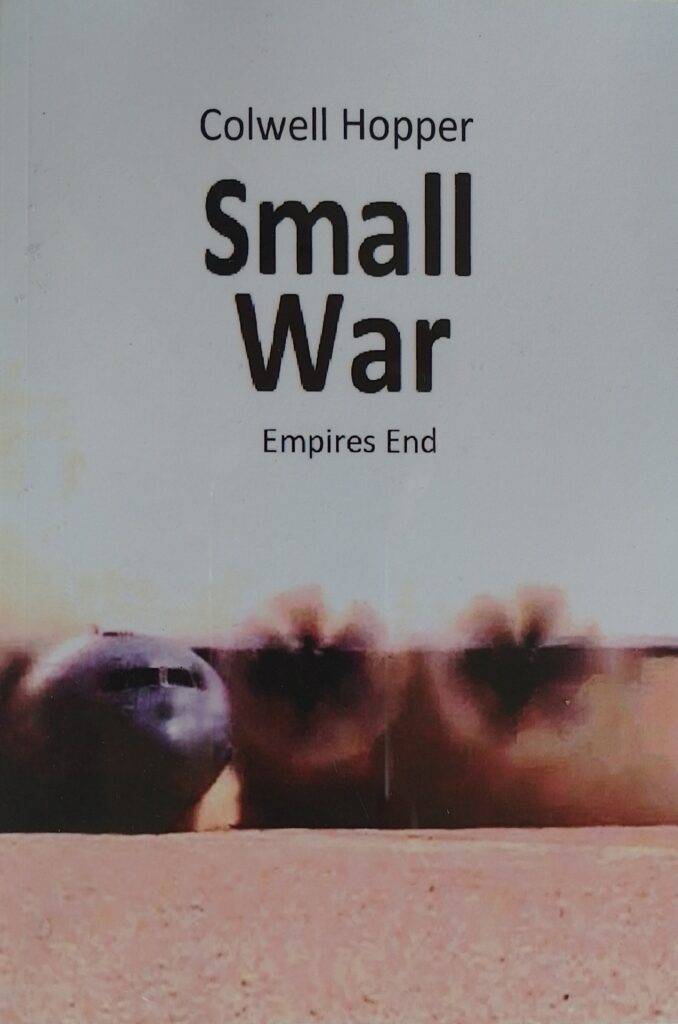First published 2022. Amazon paperback, 2022, pp 220, c.52,000 words.
Straight forward thrillers are rare these days, so it was a real pleasure to come across this well written yarn. The basic form is out of the Shute/Innes/Bagley/Lyle/Kyle/etc. mould: take a competent but unexceptional man and place him in an extraordinary situation, then pile on the pressure. Here we have Jon Ball, army man, now on a posting doing minor security work for the British Embassy in some east African country. He is sent to an airport and collects a journalist, a young woman who says she is from the BBC. Immediately they are surrounded by chaos. A soldier dies, a large crowd of locals with all their belongings is on the move, blocking the road. An army truck forces a passage. One of the strongest points of this book are the evocations of Africa with its heat, dust, flies, the scrub and parched land, the bullies and the oppressed. It is not there as a pretty background either, but an integral element of the story. The greedy ‘Big Men’ and the dignified but indigent masses are here, so are decent intelligent locals, trying to survive and better themselves – some honourably, some dishonourably. There are stupid, racist whites and some fully assimilated white Africans.
The story is simple enough: how are these two going to make it back to the safety of the British Embassy in the capital amid what seems to be civil war? In the background is the indifference of Britain as to what is happening in the world, except perhaps journalistic ‘ain’t it awful everywhere else’ stories. The subtitle of the book is ‘At Empire’s End’. Britain no longer has ideals of helping others, however misguided they may seem in retrospect: many actually wanted to help and believed they were. Hovering in the background is Britain’s referendum on maintain membership of the European Union, giving an uneasy sense of time in suspension both at home and abroad. A country and a people have lost their place in the world, their sense of direction and have turned inward.
There are some cracking set-pieces. Most notably in a passage where the group have been ambushed, and Ball realises that to survive he must out-flank the ambushers. One can feel the consuming fear, the knowledge that one mistake will be fatal, the desire to run away, and yet the training and discipline to keep going in the face of great risk. It is one of the most realistic portrayals of a soldier going into battle that I have read. Similarly, after victory, the adrenaline rush is overwhelming, that brief superman feeling that any obstacle can be conquered and one is invincible. Allied to that is a powerful sexual urge brought on by the adrenaline.
The young woman is an interesting character, of mixed European and African heritage, not quite as high powered as she would like, competent and vulnerable. Ball finds her immensely attractive, but he is happily married with a wife and daughter back home in England. Some fine passages tell of erotic desire constrained by decent behaviour and guilt; the attraction of the present versus the love and commitment of the absent (e.g. p106]. Very human.
Some short sections are told from the point of view of characters in Britain. They provide a bit of background and remind us of ‘normal’ life, going on undisturbed, as always. A few are odd – a bugged flat for instance – and are intriguing but have no connection to the main events in this story. There are a series of job adverts which are amusingly unsuitable for Ball, but irrelevant. They could have been dropped, tightening the story. Similarly, the referendum background has no relevance to the plot. What on Earth did Cameron’s resignation speech have to do with this story? Also, each chapter is headed by a quotation which, with the exception of some from a military manual, added nothing for this reader: an archaic device used in pretentious Victorian novels.
There were a couple of typos: An extra inverted comma [p116], ‘Holly’ for holy [p124], a capitalise ‘S’ in said [p142]. The young woman is said to be wearing a ‘Chirundu’ [p4] which neither I nor Google have heard of in the context of clothing (it is a town in Zambia though). From the context, it probably means a ‘wrap skirt’.
Hopper writes well, making for easy and fluent reading. The story and characters are engaging and well drawn, with real human feelings; rather superior to the usual thriller fare. There is a fine mix of low-key, sometimes dead-pan humour, as well as some visceral descriptions of the horrors of war, and brutality of ‘Big Man’ politics. Africa is particularly well evoked, as is the soldiering. I shall be reading the next in the Jon Ball series.
Biography of Hopper from his website: https://colwellhopper.com/about/
Others’ reviews of the book: (I haven’t been able to find any, even on Amazon.)
© William John Graham, May 2024

